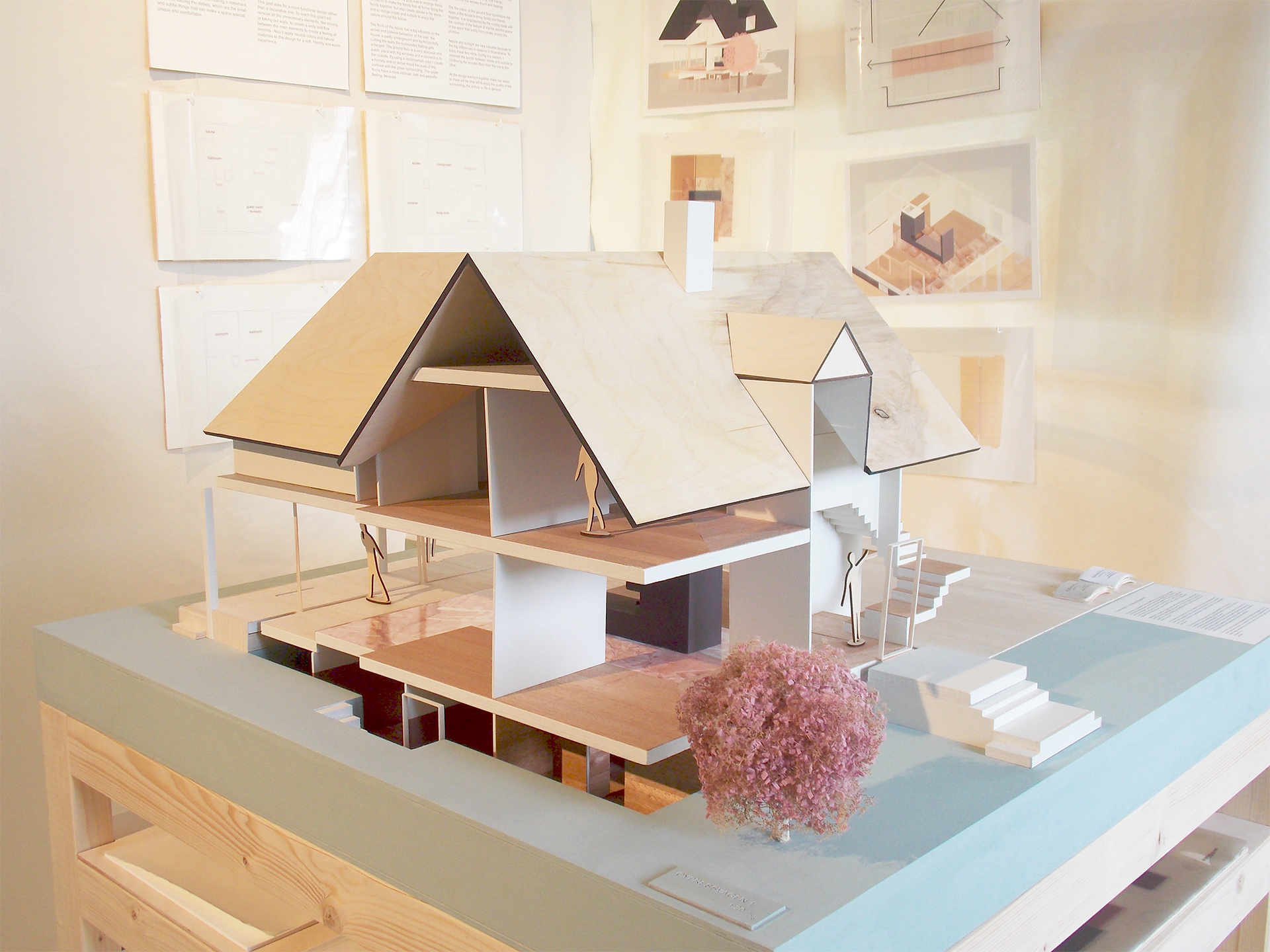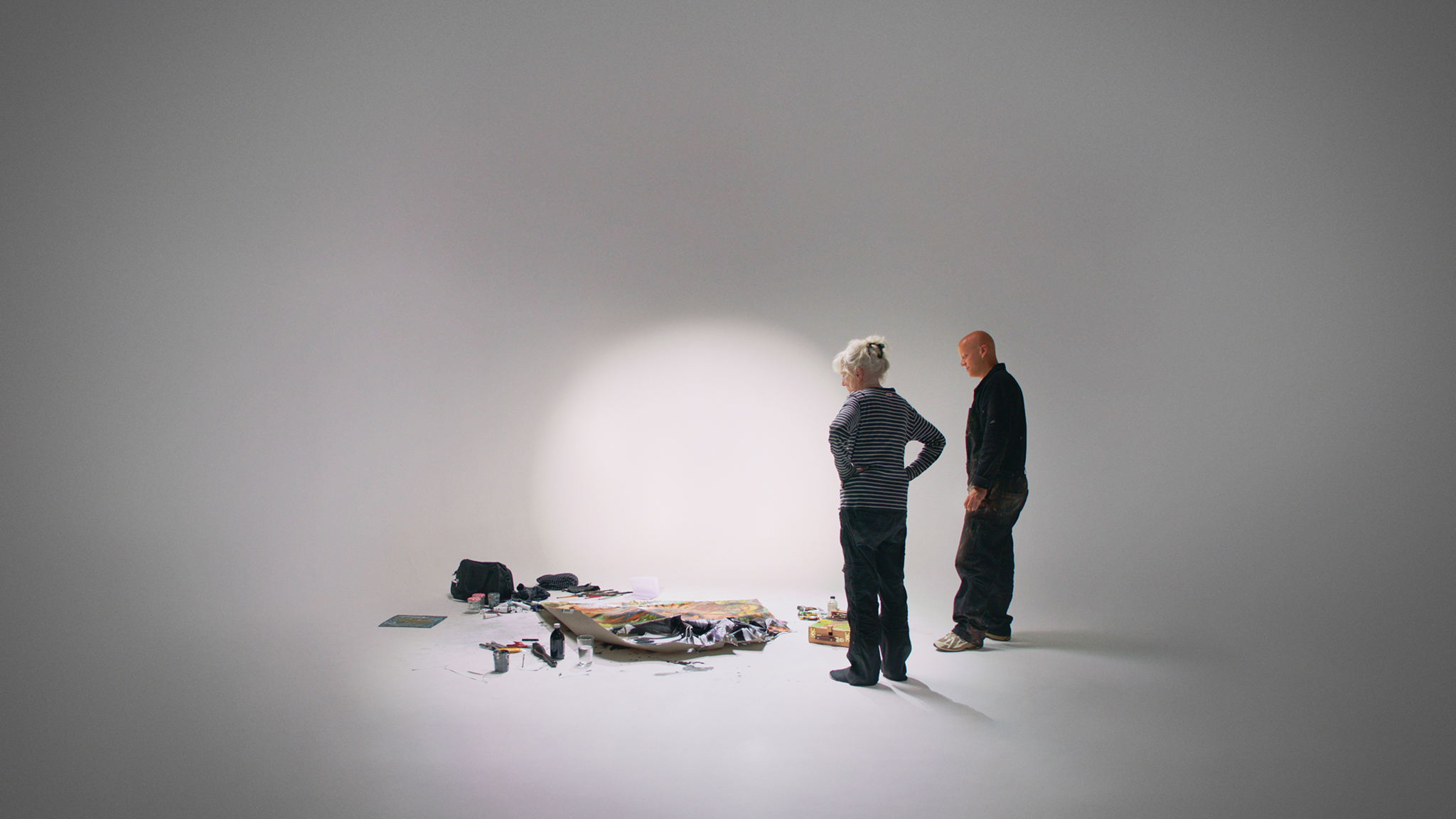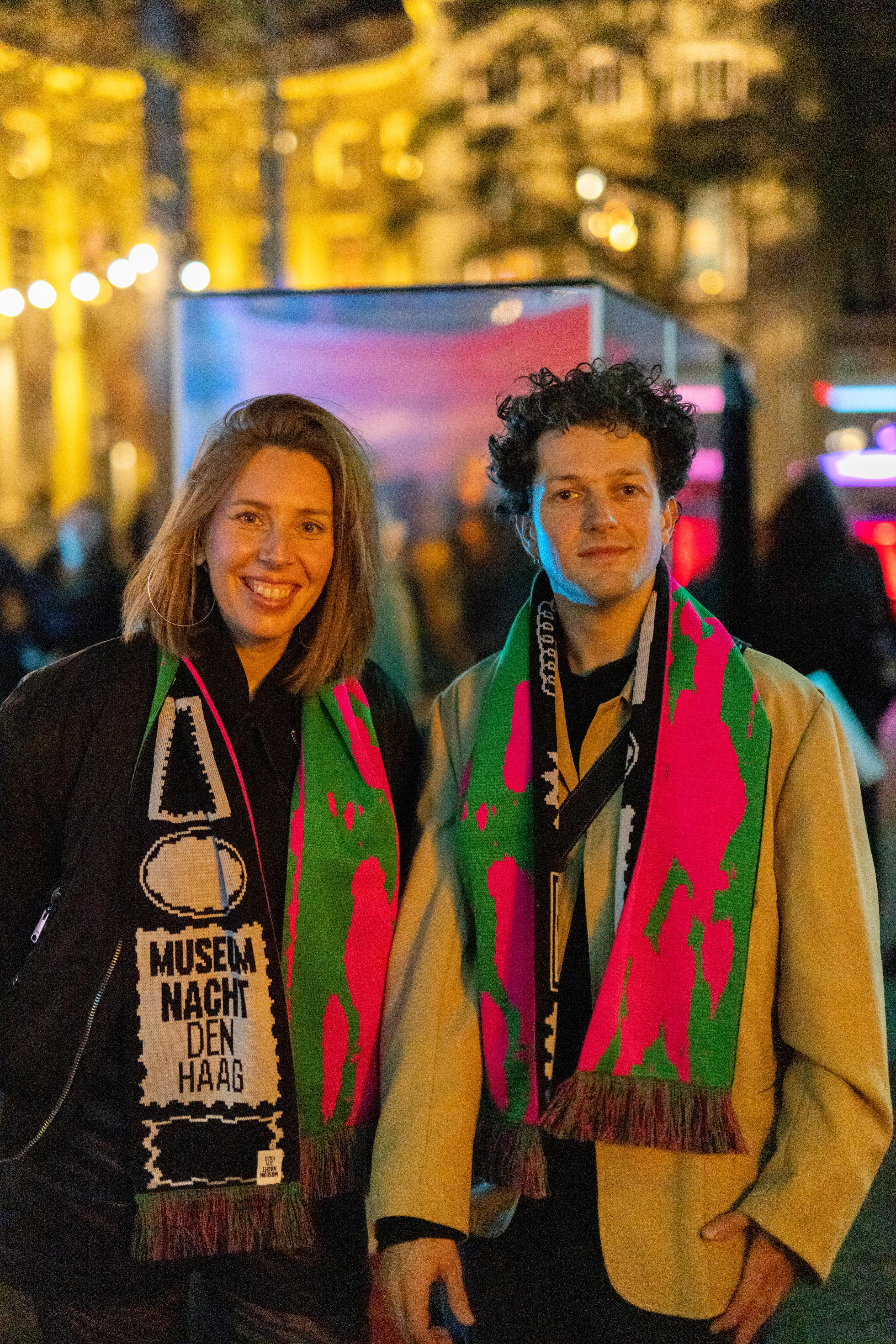Can you describe your graduation project and its main focus?
My graduation project reimagines interviews as pathways to connection and understanding, rather than just tools for gathering data. Growing up, I felt a sense of alienation, but interviewing people helped me feel seen and connected. This sparked my curiosity about why interviews can be so powerful, inspiring my work as a documentary filmmaker and this project. I created interview tools that let interviewees take control and steer the conversation using associative prompts, instead of the predefined questions found in a standard interview. I used these tools in two settings: First, at Design Academy Eindhoven, students interviewed each other with my tools and also with ones they created themselves. Second, I interviewed people with connective tissue disorders. Both projects concluded with screenings and group dialogues where stories started to interact, helping people understand themselves and each other better. It also made them feel acknowledged and more connected. By starting with one-on-one interviews, I captured their detailed, personal accounts that enriched the dialogue.
What inspired you to choose this particular subject or theme?
In my work as a documentary filmmaker, I always enjoyed the interviews the most out of the entire filmmaking process. Whenever I got stuck and didn’t know what to do, the interviews were always the moments when things started to flow. Curious about why it worked like that, I applied to this
program. The first year involves a lot of reflection, and that helped me realize that during the interviews I did as a teen, I dared to ask the questions that were really genuine and came from my heart. I was stunned to find that I got real, genuine answers back. Outside of the interview settings, I didn’t dare to ask these kinds of questions because, as I mentioned, I often felt alienated. The program helped me uncover this core motivation for my graduation project.
How did you develop and refine your ideas throughout the project?
It was a mix of close reading of theories, talks with peers, tutors, friends and family, and a lot of hands-on experimentation. The program’s flexibility allowed me to test my interview tools in try-out workshops with classmates, which was really valuable. I also found places to do this outside of the academy. For example, I gave a workshop to my colleagues at Design Academy Eindhoven, and two workshops to students of arts education at Maastricht Institute of Arts. It has been very helpful for me to see how the same tools are used and interpreted in different contexts.
As you approach graduation, what challenges have you encountered in completing your project?
Health challenges have been my biggest obstacle. There were moments when I doubted if I could continue. But I’m extremely happy that I was able to finish in the end, and that the project was so meaningful to the participants. I share the same connective tissue disorder as the people I worked with, and working from this lens has been a surprisingly fruitful way to collaborate. It helped me relate to them, while also keeping me aware of the need to challenge my assumptions that I fully understand their experience, when perhaps I don’t. The challenge is woven into my project, and working from it has given me many personal insights, and made me grow as an interviewer and educator.
What aspects of your project are you most excited about?
I’m excited that my project was directly personally insightful and sometimes quite existentially meaningful to participants. For example, one participant with a connective tissue disorder was unsure about whether to quit his law studies. He wasn’t really enjoying it but thought it was a smart choice for a stable future. After sharing experiences with others who have connective tissue disorders, he felt encouraged to stop his studies and do something he truly enjoys.
Are there any specific concerns or obstacles you're currently facing?
It's a fun challenge to think of how to share the project to people who haven’t been part of the process. Participants have shared such interesting accounts of their experiences and thoughts, and the project's outcomes are quite layered. I'm currently figuring out how to capture that in a concise form for others.
How has your experience at PZI contributed to your growth as an artist/designer/etc.?
I learned to connect practice and research. I found it an extremely joyful process to peel back the layers of ‘interviewing’ and to connect them to theories and practices of others. This really opened doors for me. There are so many interesting and deeply developed ideas created by people who spend their lifetimes thinking about topics I once thought were personal to me.
I learned that the connection between practice and theory goes beyond simply quoting theories along the way. It becomes satisfying when you see how theory influences your practice and how your practice can generate new insights. The program helped me see this.
Looking back, how have you evolved since your first year in the program?
Growing courage to fail is the most important thing I developed. I know rationally that taking risks and not knowing how things will turn out are essential in creative work. Otherwise, I would just be repeating what I already know, and nothing new can be created. However, actually doing it can be scary. In my first year especially, I felt supported by my peers and the program to experiment with workshop formats, even when the topics were new to me too. I experienced that vulnerability and honesty in my reflections on these experiments are fuel for interesting research.
In what ways has your time at WdKA prepared you for this final project?
The program carefully prepared me for this final project by breaking the research into small pieces, which helped me understand the different phases, and to not rush into things. This gave space for experimentation, adjustment, and interacting with theories. It contributed to my final project, making it informed and layered. And also very important: it made the entire process not feel overwhelming.
Have there been mentors or resources that have significantly influenced your work?
My supervisors Thijs and Maja attentively guided me and gave my own way of working room to unfold. I was stunned by the balance between confirmation and criticality they offered. Thijs introduced readings that were so spot on, and that helped me articulate things I could sense, but not yet describe in words. My friend Mathilde and my cousin Anna supported me by offering a place to say during seminar weekends. My partner Wei-Li helped me by coming to interviews and helping me with all graphic design questions — and there are many others who have supported me!
What are your immediate plans after graduation?
The interview tools I used in this project are very accessible, and I’m looking forward to trying them out in different contexts and experimenting with them with others. The sessions with students of DAE showed the value of using them in a design-school context, so I would be thrilled to further experiment with them within another art or design school. But also outside of that context, the tools are actionable because they lead to immediate dialogue that grows understanding. A key topic that came up in this project was alienation, a feeling that of course reaches beyond the group I worked with. I’m interested in working with another group who might face alienation, such as migrants, people with other illnesses. With them, we could use the tools again, but also explore other forms of agency in interviews. For example, could participants bring in their own materials, like objects, sound recordings, or texts from others, to talk about?
What are your long-term aspirations within your field?
I feel lucky to be the joint that people want to share their insights with, because I love collecting them, so that they can be shared with others. The interview tools I developed in my project help with that by giving people agency to share those insights in their own unique way. My personal aspirations or insights are not what fuel my work; it’s those of others that do. What emerges during interviews and dialogues has surprised me without exception, and I know they will be very different across contexts that I will find myself in. That makes it so incredibly exciting. In that sense, aspiration arises from every interaction I have, in this small space between interviewer and interviewee.
Do you have any advice for current or prospective students in your program?
I find it liberating to remember that research is about not knowing, and trying to find answers. Working from personal curiosity makes research rewarding, and I found it creates entry-points for connecting with others when people think along with your questions. In my first year, I struggled to trust my own questions, feeling insecure that I didn’t know ‘enough’ to ask the right ones. But I felt encouraged by something one of our tutors, Thijs Witty, said: We must limit ourselves to our problem and trust it. Even if others can’t care for our problem, if we can formulate why it matters, then it’s important.


